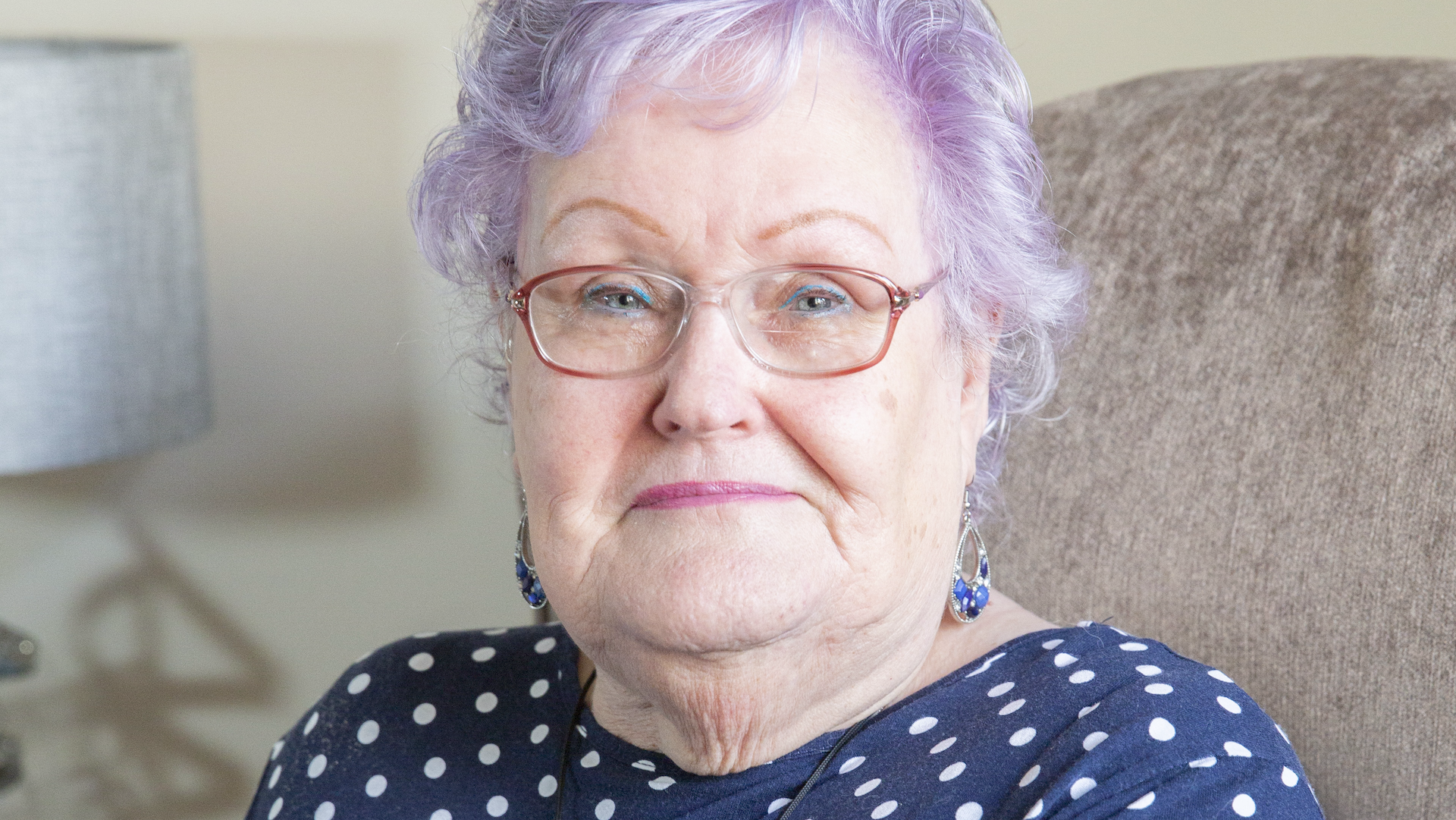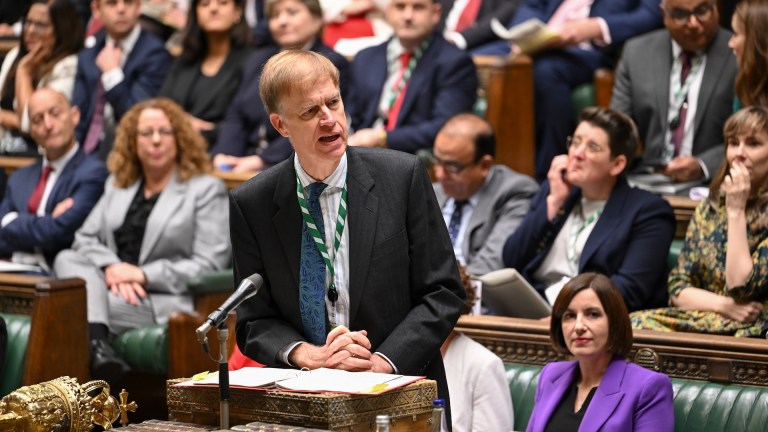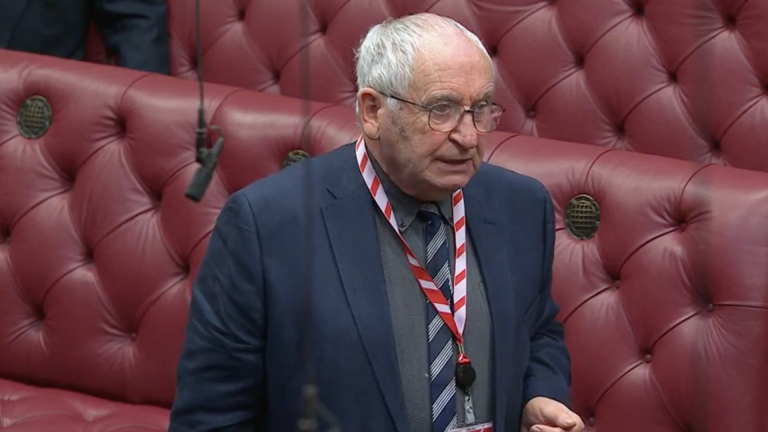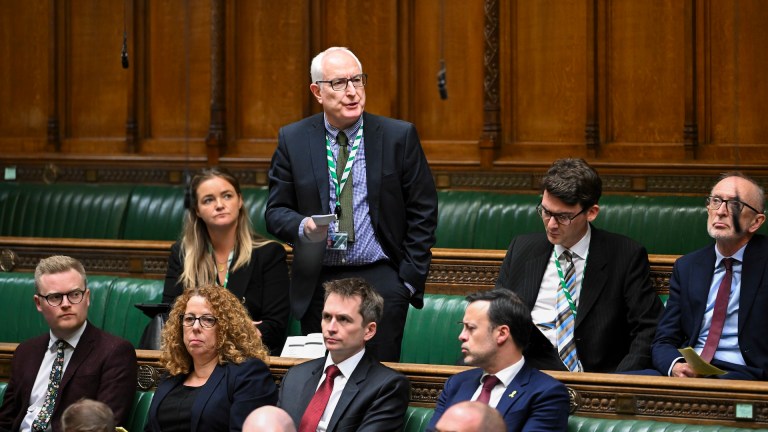But the latest cap increase may upend her modest budget.
“It’s really frightening,” she says. “The government – all governments, of all parties – have no perception of what it’s like to live on such a small amount of money.”
“I’d like them to come and live in my bungalow with me for a week when it’s blooming cold.”
Ofgem, Great Britain’s energy regulator, sets the maximum price that can be charged for each unit of gas and electricity for millions of households in England, Scotland and Wales.
From today, the energy price cap is rising 2% – or around £35 a year for a typical household.
This brings the average energy bill to £1,755 a year, almost £500 higher than it was in October 2021.
Advertising helps fund Big Issue’s mission to end poverty
Energy debt continues to grow, too, with Ofgem statistics from last week showing collective debt tipping a record £4.43 billion.
That’s a “monstrous” tally, said National Energy Action chief executive Adam Scorer – and reflects a serious national crisis.
‘Unaffordable energy bills present a risk to health – and life – this winter. These findings indicate that some of the most vulnerable people are already struggling and, justifiably, extremely worried about the coming winter,” he warned.
“Self-disconnecting from your heat and power is an act of desperation, becoming even more serious as the weather gets colder. No household should be in this situation in the UK in 2025, but many are.”
New NEA polling from YouGov illustrates the scale of the crisis. Six in 10 (58%) of British adults say they are likely to ration their heating this winter, up 9% from January 2025.
More than a third (38%) of prepayment meter customers say they have found themselves without credit on their prepayment meter and unable to access any heating or power when they needed it at least once in the last 12 months. This is an increase of 13% compared to polling at the start of the year.
Advertising helps fund Big Issue’s mission to end poverty
As one of the 2.1 million pensioners living in poverty in the UK, Bailey will ration her heating.
“This year is going to be the same as last year,” she explains. “It’ll be the heating on for an hour in the morning so I can have my shower and get dressed in the warm bathroom, and then the rest of the day it’d be layered up clothing wise, if it gets cold.”
“I crochet, so I crochet blankets to put around my shoulders. I’ve invested in fingerless mittens so if I want to sit still and do my knitting and crochet, I can. But it’s no way to live a bloody life.”
Why is the energy cap increasing?
Ofgem review the energy cap every three months. It sets the maximum price for each unit; the total bill depends on how much energy is used.
Usually, the price is determined by the wholesale cost of energy. But this time, the increase will also fund extra government support measures for people who are struggling – including the £150 Warm Home Discount automatically applied to the bills of people on means-tested benefits.
The rising costs of switching to renewable energy sources have also contributed to the increase.
Advertising helps fund Big Issue’s mission to end poverty
Renewables will ultimately end the UK’s reliance on volatile gas prices, saving billions in the long run.
According to Department for Energy Security and Net Zero’s projections, solar output cost now averages £41 per megawatt hour (MWh) from new projects. For new gas power stations, the equivalent lifetime costs will be close to £114 per MWh.
Nonetheless initial installation costs are substantial. Around £17 of the £35 cap increase will fund payments made to shut wind farms when there is more renewable energy generation than can be used, or to fire up gas plants when needed.
Cornwall Insight consultancy has predicted that the price cap will fall slightly in January.
But for pensioners like Yvonne, that’s cold comfort. She suffers from fibromyalgia, osteoarthritis and spinal stenosis – yet can’t afford to heat her home to a comfortable level.
“If I get cold, I’m in terrible pain,” she said. “I have a lot of health problems, I’m still independent but I do.”
Advertising helps fund Big Issue’s mission to end poverty
People like Bailey have been stretched to “breaking point”, said David Southgate, a policy manager with Independent Age. This is the charity which has supported Bailey.
“Winter is around the corner and even small increases will be too much to bear for many of the people in later life we speak to who are already making drastic cutbacks,” he said.
“Last winter, too many older people in financial hardship were left behind choosing between heating and eating, and avoiding inviting over loved ones because they were worried their home was too cold for visitors.”
As many as 3.2 million pensioner households are in fuel poverty in the UK.
Bailey backs a wealth tax to fund additional support for people who are struggling (though Starmer dampened speculation that his government would adopt one in his party conference speech).
“I would do a wealth tax. You know, all this cobblers about, oh, well, all the millionaires will all leave the country – no they won’t,” she said.
Advertising helps fund Big Issue’s mission to end poverty
“Meanwhile, most of us struggle. Politicians have no perception. I want to go into parliament and whack them all with a wet fish.”
Do you have a story to tell or opinions to share about this? Get in touch and tell us more.
Reader-funded since 1991 – Big Issue brings you trustworthy journalism that drives real change.
Every day, our journalists dig deeper, speaking up for those society overlooks.
Could you help us keep doing this vital work? Support our journalism from £5 a month.





